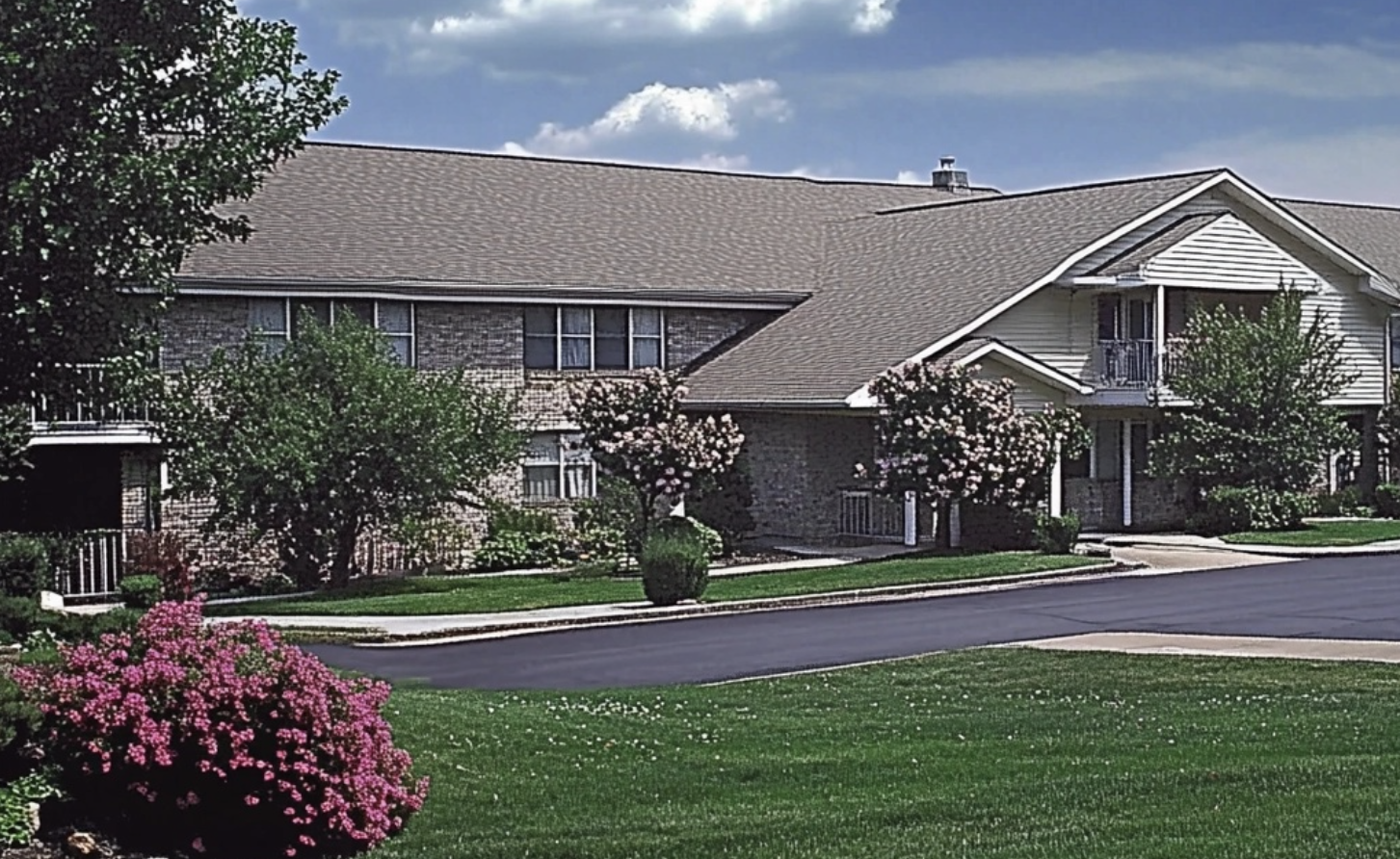
While it’s important to respect your parents’ independence, there can come a time where your elderly parent is no longer capable of aging-in-place or aging without additional help. This can look different for every individual, and it’s challenging to decide whether your level of concern justifies taking further action. If you are worried about whether or not your older parent needs help aging, or are considering calling a family meeting to talk about getting extra help for mom and dad, consider some of the warning signs below in your decision.
1. Your parent is unsafe in their own home.
Unsafe can refer to a range of hazards around the home or outside that are risks, particularly for seniors. While many older people want to age in their own homes, Age Safe America reports that 85% of older adults haven’t equipped their homes in any way for healthy aging. Safety issues can arise in each room of the house, from tall kitchen cabinets too high to reach to throw rugs and slippery bathrooms that are difficult to spot and pose fall risks. If your parent is planning on staying in their own home, also consider any dangerous tools they may have in their home.
2. Your parent isn’t keeping up with their routines, especially personal hygiene.
If your parent is struggling with the activities of daily living, like showering, grooming, or keeping clean, it may be time to consider support services. There are a couple of reasons that older parents begin to neglect their hygiene, but it can be a worrying change in behavior and a good reason to consider a home caregiver. While this isn’t an easy conversation for adult children to have with their aging parents, neglecting daily tasks can be a sign of an underlying medical condition impacting your parent. It can also be a sign that other areas of your aging parent’s routines are going unfulfilled. Your parent may just need someone to help with grooming every day, but they may need help in other areas as well.
3. They are struggling to keep their home clean and tidy.
Much like with hygiene, not keeping up with work around the house can be a sign that your elderly parent needs additional help. When evaluating what kind of additional support your parent needs, keep in mind that there are different levels of physicality required for different chores around the house. If your parent is neglecting yardwork, they might be struggling with pushing a heavy lawnmower or reaching tall tree branches and could benefit from a family member or gardener stepping in to help. However, if your parent is struggling with daily chores like laundry or cleaning dishes, it may be beneficial to consider a home care company or another senior care option.
4.Your parent is experiencing frequent memory loss.
Even if your parent has not been formally diagnosed with a condition like dementia or Alzheimer’s disease, older parents who are struggling to remember important details from events or struggle with short term memory likely need additional help aging. If your parent forgets what they are doing while completing daily activities, for example, they are at risk for leaving stoves or burners unattended, which can easily set a fire in their home. They may struggle to remember long term plans or important dates, which can also impact their ability to pay bills on time or meet obligations. These are all concerns that might warrant a doctor’s visit. If possible, offer to take your parent and come early to make sure that they remember the appointment and are prepared. It’s difficult to watch a loved one struggle with their memory, just as it can be challenging and confusing for your parent to forget important details from one day to the next. Seeking help can bring some peace and guidance to your whole family.
5. Your parent has lost weight.
If you begin to notice your elderly parent losing weight, it can be a serious warning sign that they need help aging. Losing weight can indicate that your parent has trouble eating or struggles to prepare food for themselves. Loss of appetite may be a sign of underlying health problems and can be a sign of depression in some cases, further pushing the concern. On the other hand, your parent’s weight loss may indicate that they have trouble grocery shopping or getting healthy food for themselves. This can have several causes, ranging from discomfort driving to financial stressors. Regardless of the cause, your parent’s weight loss is a good indicator that they need help taking care of themselves and a good reason to check in with them.
6. Your parent has recently experienced an injury or health scare.
Recent accidents or health scares like falls or strokes can be scary for the whole family, and can be indicators that it’s time to seek help for your parent. The process of recovery can be challenging, and some seniors may have long-term or permanent health effects. Your parent’s doctor may recommend that they seek rehabilitative care and they are likely going to have to change their routines to accommodate their health. Whether this is focused on physical therapy or includes diet and lifestyle changes, your parent will need support for some duration after the incident. Similarly, your parent may need help managing any chronic conditions, whether or not they are related to the injury. While the best way to support a parent who needs frequent medical care can vary, your family may consider seeking the services of a home health aide or registered nurse who can provide in-home care.
7. Your parent can no longer get around by themselves.
If your parent can no longer drive or is unable to otherwise get around, they’ll need frequent assistance. Without access to transportation, your parent may be unable to meet basic needs like shopping, attending doctor’s visits, or maintaining their social lives. If they cannot regularly count on a family member or home caregiver to get around, they may need to consider an alternative to aging-in-place that would help them meet their needs. Even if your parent can legally drive, consider if they are a safe driver on the road. While you can help your parent make accessibility adaptations to their vehicle if they need them, several health factors can put your parent at risk for an accident. Talk with your parent about cutting down on their driving at night and during peak traffic hours, or discuss alternate plans for their transportation. Many adults are unaware of how their medications can impact their driving, so make sure your aging parent has met with their doctor regarding any concerns.
8. Your parent can’t manage their own finances.
If your parent is making financial decisions that you disagree with (like impulsive purchases), you may ultimately have to respect their autonomy as they control their own affairs. However, if your financially independent parent is struggling to pay bills on time, is unsure about the state of their bank accounts, or is otherwise struggling to keep track or keep up with their financial responsibilities, it may be time to step in or seek outside help. Determine why your parent is struggling with personal finances; are they struggling to make ends meet or are they forgetting to track finances and make important payments? Understanding why your parent is having difficulty is key to deciding the best way to find support for your family.
9.Your parent is socially withdrawn.
If your parent has become inactive, is reluctant to leave their home, or is no longer maintaining their social life, they may need assistance. Whether they are just averse to in-person interaction or avoiding phone calls as well, withdrawing socially is concerning for a few reasons. On one hand, it can mean that your loved one is uncomfortable driving themself. Loss of interest in social connection can also be a key warning sign that your aging parent is struggling with depression. Experts emphasize that while depression is extremely common among seniors, it is a cause for concern rather than a routine part of the aging process. Depression can affect people of all ages, but seniors struggling with the loss of friends and loved ones or the loss of their own independence are considered to be at high risk. Seniors also face unique health factors associated with depression. Encourage your loved one not to isolate, and try to get them to communicate their feelings.
10.Your parent’s mood has changed.
While your parent may still be engaging in social gatherings with family and friends, changes in their attitudes can be just as concerning as changes in their behavior. If you find that your parent is suddenly more irritable or ill-tempered than usual, this may be a warning sign of depression. Even if they seem alright at first glance, their mood may change over the course of a conversation or event. Take these warning signs as opportunities to talk with your parent about how they’re feeling.
References:
https://health.usnews.com/senior-care/caregiving/articles/identifying-the-right-time-for-senior-care
https://www.nia.nih.gov/health/what-are-signs-aging-parent-needs-help
https://www.mayoclinic.org/healthy-lifestyle/caregivers/in-depth/aging-parents/art-20044126
https://dailycaring.com/5-keys-to-helping-aging-parents-with-finances/
Images:
- Pexels, Andrea Piacquadio
- Pexels, Wallace Chuck
- Pexels, Steve Johnson











